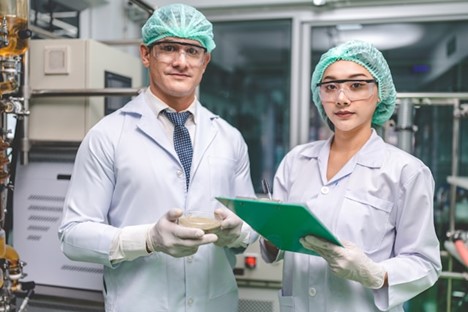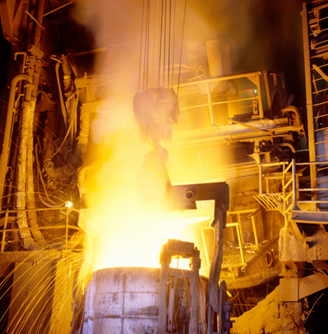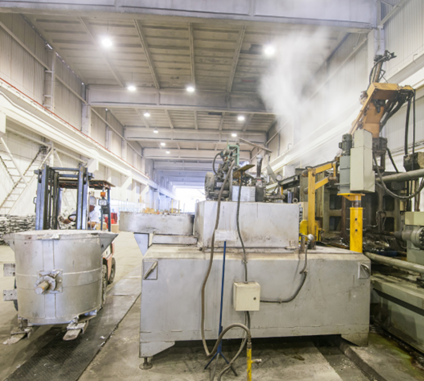Venky Murthy CEO of Advanced United Refining

Venky Murthy CEO of Advanced United Refining on Advancing Sustainable Electronics Recycling
Venky Murthy is the CEO of Advanced United Refining (AUR), a pioneering force in the electronics recycling industry with a profound commitment to environmental stewardship and technological innovation. With over 25 years of expertise in electronic waste management, Venky Murthy has spearheaded initiatives that redefine the landscape of precious metals refining globally, particularly across Asia. His leadership extends beyond business success to include influential roles, such as his position on the “R2- Sustainable Electronics Reuse and Recycling” board, where he helps shape industry standards crucial for electronics scrap producers worldwide.
The Legacy of Innovation
Under Venky’s guidance, AUR has set benchmarks in the industry by establishing state-of-the-art precious metals refineries across Asia and launching the Integrated Refining Facility in Phoenix, Arizona. This facility not only showcases cutting-edge technology but also embodies AUR’s commitment to sustainability, efficiency, and transparency in every process.
Key Pillars of Advanced United Refining
Integrity and Transparency
Integrity is the cornerstone of AUR’s operations. Venky ensures that openness and full disclosure permeate every aspect of the company’s operations. From meticulous mass balance reports to comprehensive documentation, AUR prioritizes accountability, earning trust and confidence from its partners and customers at every stage of the recycling process.
Experienced Leadership
At the heart of AUR’s success lies its management team, renowned for their extensive experience and expertise in electronic equipment and precious metals management. With backgrounds spanning the United States, China, India, Singapore, and Malaysia, this team brings unparalleled professionalism and insight to the industry, driving AUR’s reputation as a leader in electronic waste recycling.
Cutting-Edge Processes
AUR’s Integrated Refining Facility in Phoenix exemplifies their commitment to innovation. Equipped with state-of-the-art technology, this facility delivers superior quality and higher value returns, while ensuring faster turnaround times and complete traceability of materials. This approach not only enhances efficiency but also sets new standards for sustainable resource management in the electronics recycling sector.
Commitment to Sustainability
Sustainability is at the core of AUR’s mission. Venky and his team have engineered a proprietary closed-loop system that not only meets but exceeds federal, state, and local environmental standards. This system underscores AUR’s dedication to zero waste operations, safeguarding the health and safety of employees and surrounding communities while delivering substantial benefits across diverse industries.
Advancing Towards a Sustainable Future
Venky Murthy’s leadership at Advanced United Refining embodies a vision where technological advancement converges with environmental responsibility. Through pioneering initiatives and a steadfast commitment to integrity, people, process, and sustainability, AUR continues to redefine the boundaries of electronic waste recycling. As the industry evolves, Venky Murthy and AUR stand poised to lead the charge towards a more sustainable future, where innovation and environmental stewardship go hand in hand.
Venky Murthy’s influence as CEO of Advanced United Refining extends far beyond the realms of business. His visionary leadership and commitment to sustainability set a precedent for the electronics recycling industry, inspiring others to embrace responsible practices that preserve our planet for future generations. Under his guidance, AUR not only thrives but also sets the standard for excellence in electronic waste management, paving the way towards a cleaner, greener future.
The Role of Bioplastics in Green Manufacturing
Bioplastics, hailed as a sustainable alternative to conventional plastics, are increasingly gaining traction in the manufacturing industry. These materials offer promising environmental benefits and find diverse applications across various sectors. Venky Murthy CEO of Advanced United Refining explains the role of bioplastics in green manufacturing, highlighting their advantages, applications, and contributions to environmental sustainability.

Understanding Bioplastics
Bioplastics are derived from renewable biomass sources such as corn starch, sugarcane, cellulose, and vegetable fats and oils. Unlike traditional plastics derived from fossil fuels, bioplastics are designed to biodegrade more quickly under certain conditions or are made from renewable resources, reducing dependence on non-renewable resources and mitigating environmental impact.
Environmental Benefits of Bioplastics
- Reduced Carbon Footprint: Bioplastics typically have a lower carbon footprint compared to conventional plastics because they utilize renewable feedstocks that absorb CO2 during growth.
- Biodegradability: Some bioplastics are designed to biodegrade in composting facilities, reducing plastic waste in landfills and oceans.
- Resource Conservation: By using renewable resources, bioplastics contribute to resource conservation and reduce dependency on finite fossil fuels.
Applications in Various Industries
Packaging
Bioplastics are widely used in packaging due to their versatility and environmental advantages. They can be found in:
Food Packaging: Bioplastic films and containers are used for food packaging, offering barrier properties and safety while being compostable or recyclable.
Consumer Goods: Bioplastic packaging for consumer products like cosmetics and household items enhances brand sustainability.
Agriculture
In agriculture, bioplastics find applications in:
Mulch Films: Biodegradable mulch films help improve soil health and reduce plastic pollution in agricultural environments.
Plant Pots and Trays: Bioplastics are used in nurseries and gardening for sustainable plant propagation.
Automotive and Electronics
Interior Components: Bioplastics are increasingly used in automotive interiors for components like dashboards and panels to reduce weight and enhance sustainability.
Electronic Casings: Bioplastics are explored for electronic device casings, offering durability and reduced environmental impact.

Medical and Healthcare
Disposable Medical Devices: Bioplastics are used in single-use medical devices and packaging, ensuring safety and reducing environmental footprint.
Textiles and Fashion
Fiber Production: Bioplastics are used to produce fibers for textiles, offering a sustainable alternative to synthetic fibers.
Challenges and Innovations
While bioplastics offer significant environmental benefits, challenges such as cost competitiveness, scalability of production, and end-of-life disposal infrastructure remain. Innovations in bioplastic technology aim to address these challenges by improving material performance, enhancing biodegradability, and expanding applications.
Conclusion
Bioplastics represent a promising avenue for achieving sustainability goals in manufacturing. Their environmental benefits, including reduced carbon footprint, biodegradability, and resource conservation, make them attractive alternatives to traditional plastics across diverse industries. As research and development in bioplastic technology continue to advance, the future holds promise for broader adoption and integration of these sustainable materials into mainstream manufacturing practices. Embracing bioplastics in green manufacturing not only promotes environmental stewardship but also drives innovation towards a more sustainable and resilient future.
In conclusion, Venky Murthy CEO of Advanced United Refining says that the role of bioplastics in green manufacturing is pivotal in mitigating environmental impact and promoting sustainable development. As industries seek to reduce their carbon footprint and enhance environmental responsibility, bioplastics offer a viable pathway towards a more sustainable future.
To learn more about Venky Murthy, his role as CEO of Advanced United Refining, and to find article related to Green Chemistry, Circular Economics, Carbon Credit Calculations, Environmental Protection, check out the blog page.